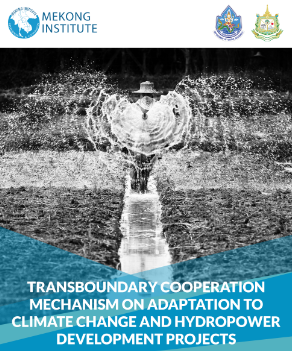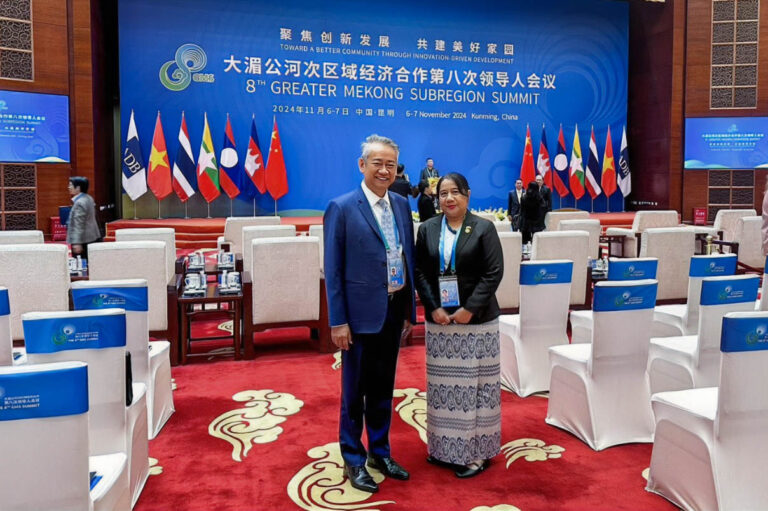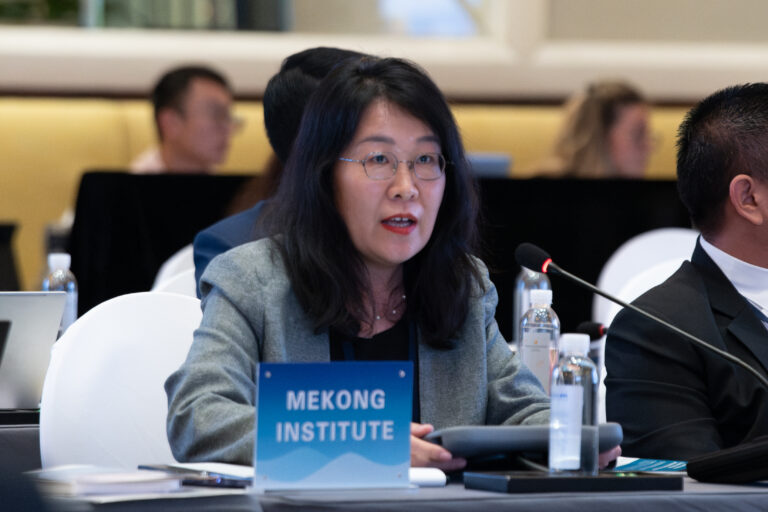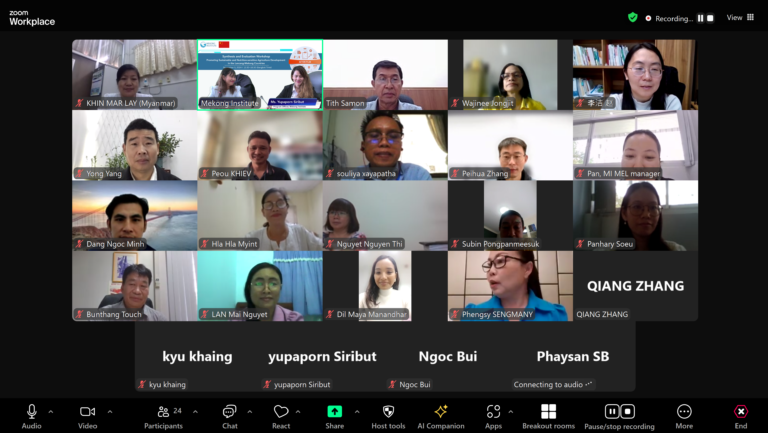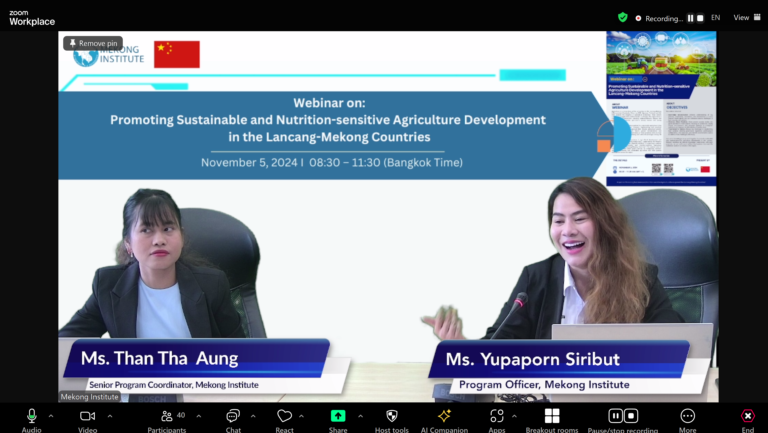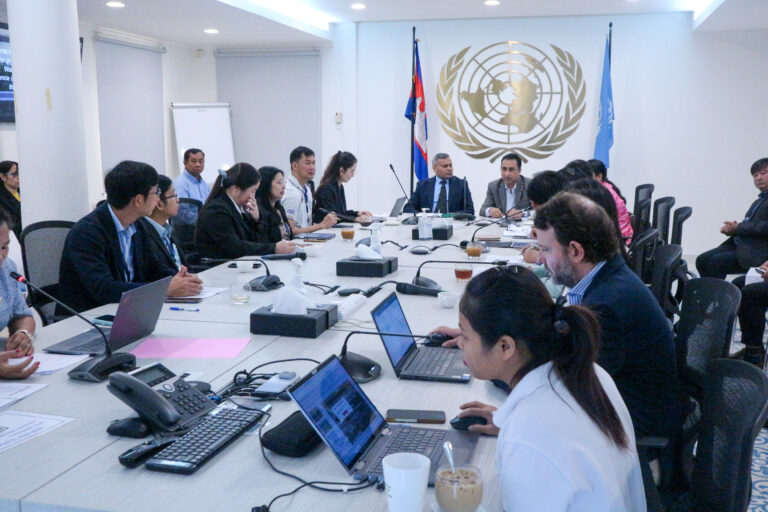Bangkok, Thailand (11 October 2018) – The Thai Ministry of Natural Resources and Environment (MoNRE), the Government of the People’s Republic of China through the Embassy of China in Thailand, and Mekong Institute (MI), are signing today a Memorandum of Understanding (MoU) on a landmark project that endeavors to strengthen cooperation on hydropower projects and the mitigation of associated climate change impacts.
The project is supported by the Mekong-Lancang Cooperation (MLC) Special Fund and to be overseen by the Department of Water Resources, MoNRE, with Mekong Institute, an intergovernmental organization working in human resource development, as implementing agency. Dr. Wijarn Simachaya, Permanent Secretary of MoNRE, and H.E. Mr. Lyu Jian, Chinese Ambassador to Thailand, are signing the MoU between the respective countries. Dr. Simachaya and Dr. Watcharas Leelawath, MI Executive Director, are signing the cooperation agreement between MoNRE and MI.
The one-year project seeks to establish an information-sharing platform that will bring together relevant stakeholders and experts from China and the Mekong countries to broaden and enhance their mechanisms for communication and knowledge exchange, particularly on the analysis and design of technical solutions to better manage and operate water storage structures.
“The project is geared toward collaborative information exchange among concerned agencies in Cambodia, China, Lao PDR, Myanmar, Thailand, and Vietnam, with emphasis on adaptive management and operation of hydropower projects as well as climate change mitigation,” says Dr. Leelawath. In doing so, it aims to translate evidence-based information to beneficial strategies, especially for the communities in the hydropower project sites.
The operation of water storage structures, coupled by the impacts of climate change on the Lancang-Mekong River basin, has resulted into low flows and variable and unstable water levels especially in northern Thailand and Lao PDR. The project offers a platform for collaboration and communication of experts and stakeholders to address these issues, and ultimately, increase public awareness on mitigation and adaptation to climate change impacts related to the water flow of the Lancang-Mekong River.
Ms. Maria Theresa S. Medialdia, Director of Agricultural Development and Commercialization (ADC) Department, MI highlights the importance of stakeholder consultation in developing a concrete mechanism for cooperation and information-sharing among the six member countries. “As a collective endeavor, national consultations will be held to identify experiences, prioritize issues on water level fluctuations, and propose corresponding strategies to it,” she explains.
For its first phase, the project will focus on the hydrological stations in Chiang Saen and Chiang Khan, Thailand and Luang Prabang, Lao PDR.
MI is also the implementing agency of four other LMC Special Fund-supported projects on the promotion of cross-border trade facilitation and rural e-commerce.


